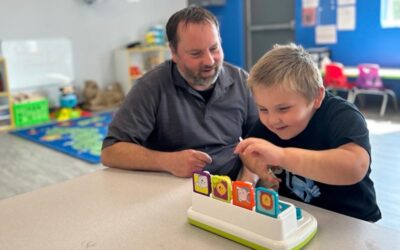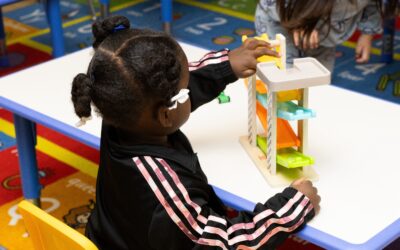Many parents of children on the spectrum worry that their child can never have the level of freedom their neurotypical peers experience in adulthood. While for some this may be true to one extent or another, independence is something that can be built in any child on the spectrum. In this post, we’ll discuss building independence for children on the autism spectrum.
The Variances of Independence
To build independence it is first crucial to understand what kind of independence your child will benefit from. For many with severe behavioral or developmental challenges, they may learn independence in owning the basics of their daily routines but require ongoing supervision and guidance in social situations or interactions with peers and relatives.
On the flipside, some children may learn independence in communication much easier or quicker than independence in their motor skills or daily care. As such, it is entirely possible for children to build independence in certain areas of their lives well before others.
Tips for Building Independence
You may be wondering how best to build independence in your child early. Fortunately, there are many ways to foster independence in your child’s life in a way that is most beneficial and safe for them. Some of the best ways to build independence include:
- Building communication skills– If your child struggles with communication and language, one of the best ways to build independence is to work on the ways they express themselves so they can communicate more effectively with others. Whether it be verbal or nonverbal, practicing the communication is key.
- Scheduling- Many children on the spectrum thrive in routines. One of the best ways to work on their independence is encouraging them to understand and memorize their schedule. If it helps, making a visual schedule to make it more effective.
- Accomplish tasks around the house– Chores can be a great way to teach your child responsibility and valuable life skills that will come in handy when preparing for an independent adulthood. Have them help around the house to start, then slowly let them take over on their own.
- Practice and Discuss Safety- Safety is a key factor in independence. Be sure to discuss and help your child understand the rules of any given space they occupy, and the best tactics for them to stay safe when in public.
- Practice with Money and Vocational Skills- Though the concept of work and finances can be understandably complex, if your child has the ability to grasp the basics, be sure to discuss it with them. These lessons can be invaluable when building independence in your child.
- Self-Care- Another factor of independence that often goes unnoticed, is that of self-care. It can be very hard to know when to take a break, so teaching your child how to manage their stress with self-care tactics can be extremely valuable when building independence.
Independence in Adulthood
Building independence early can be a great foundation for independence in adulthood. Many children on the spectrum grow up to lead successful and independent lives where they find success in both personal and professional pursuits. This is especially true for children who are diagnosed early and receive the proper behavioral and holistic treatment like Applied Behavior Analysis (ABA) therapy.
For more ABA and autism related news and tips visit our blog and follow us on Facebook, Instagram, and Twitter! If you have questions regarding ABA therapy services or you’re interested in visiting one of our locations, don’t hesitate to reach out to us on our contact page. We’re always here to answer your questions and support your family’s needs as best as we can.



